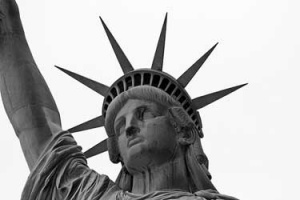US Senate passes Travel Promotion Act

The United States Senate has passed the Travel Promotion Act, with the express aim off attracting millions of foreign tourists to America.
Voting 78-18 in favour of the legislation, the Senate has agreed to establish a non-profit corporation to promote travel in the United States. The body will be tasked with assuring potential visitors they will be welcomed in America, while also assisting with paperwork and offering information regarding American places of interest outside the usual tourist destinations.
The legislation now goes to president Obama for his signature. Mr Obama has previously expressed his support for the Act, making the stage a formality.
Funding for the new programme will be split between public and private sources. The American government hopes to provide $100 million (£80 million) to the scheme, largely through the imposition of a $10 levy on guests from nations – mostly in Europe – which presently benefit from the visa waiver programme.
Private sources in the travel and tourism sector would then be expected to match this sum.
ADVERTISEMENT
The move is in response to a report from the US Travel Association, which finds, while worldwide international tourist arrivals jumped from 682 million in 2000 to 880 million in 2009, arrivals in the United States declined from 25.9 million to 23.5 million over the period.
Senate’s decision has been welcomed by the US Chamber of Commerce.
“This bill will help alleviate much of the confusion that exists with regard to new security procedures, and attract new international visitors annually,” commented Bruce Josten, executive vice president of Government Affairs for the Chamber.
“By doing so, it will create jobs, strengthen our economy, spur economic investment, and provide an important diplomatic benefit for our country.”
The United States does not presently maintain a coordinated tourist body – such as VisitBritain – with individual states responsible for their own efforts. It is hoped the Travel Promotion Act will end this situation and attract an additional 1.6 million visitors to the US annually.
“The United States has some of the greatest vacation destinations in the world and should seek to attract legitimate travellers,” added Mr Josten.
“With new security regulations constantly being implemented, it is imperative the rest of the world remains informed and that the US regains its position as one of the world’s most popular destinations.”

